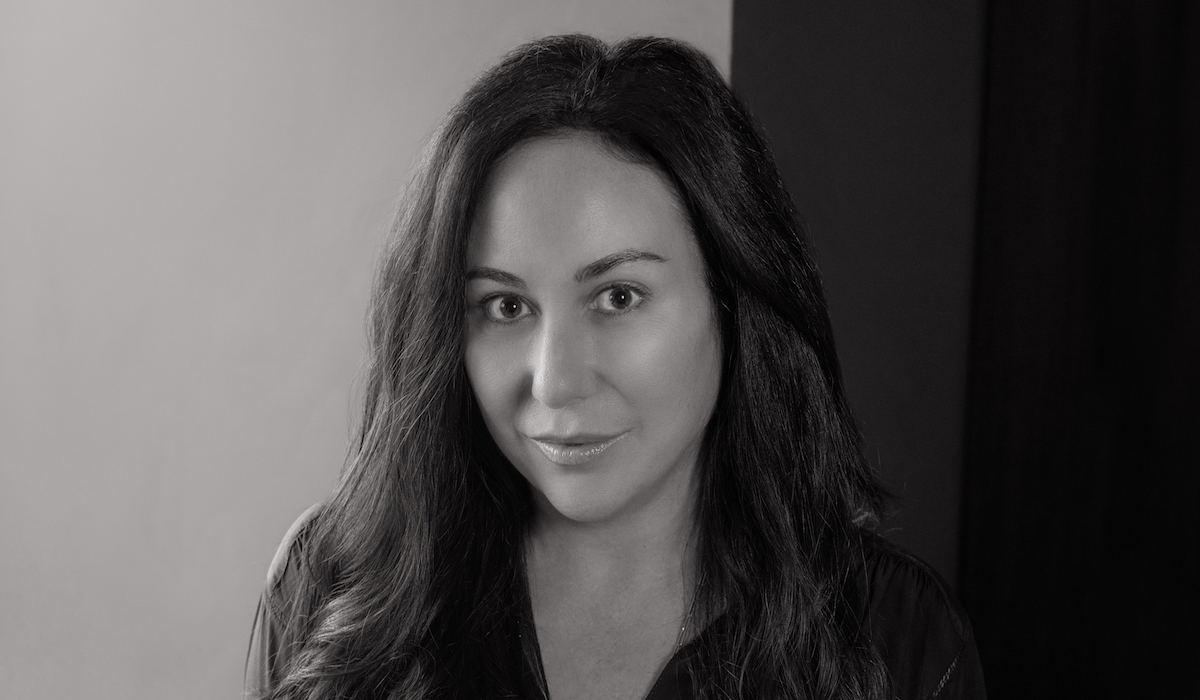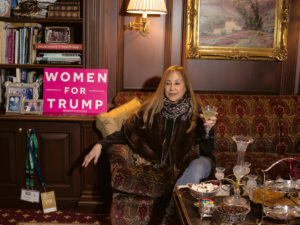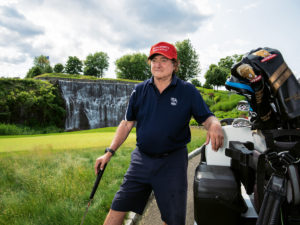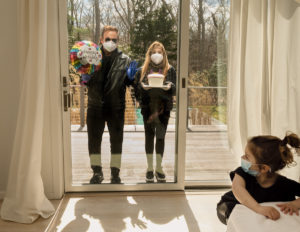Politics Threatened to Divide One Family. This Book of Photos Brought Them Together.

When Donald Trump was elected president in 2016, Gillian Laub knew she was in for a painful four years. But it wasn’t just because the lifelong Democrat who’d vehemently opposed Trump and all he stood for was worried about the country. She was worried about what it would do to her family.
“When I looked at Trump, I saw a bully who proudly mistreated women, who wanted to build a wall at the Mexican border, who seemed not just unconcerned about people of color or the oppressed but actively contemptuous of them,” says Laub. “My father looked at Trump and saw a fearless, truth-telling patriot.”
Laub’s parents had always voted for both Democrats and Republicans. Her dad loved to regale anyone who’d listen about why Bill Clinton was one of America’s best presidents. So, when Laub’s mom texted her pictures from Trump’s election-night party, the pings on her phone felt like painful aftershocks. “I was ashamed to show them to my grieving friends,” says Laub. “I was ashamed to be looking at them myself.”
Yet Laub, an artist and photographer, knew she had to do what she does best: document what was happening by having her camera out the whole time. Her new book, Family Matters, is a collection of those photos—images of her family from Trump’s presidency and beyond which, it turns out, would help her see her family’s closeness and devotion to each other despite the political beliefs that divided them.
The Sunday Paper sat down with Laub to discuss her new book, what she learned by photographing her family during such a divisive time, and her best advice for the rest of us on how we can feel connected and compassionate to others—even when our disagreements threaten to drive us apart.
Take me into those early days of your realization that many of your family members were Trump supporters. What was that like for you?
I’ll never forget one moment: I was at a doctor’s appointment with my newborn daughter and got a text from my dad. It was a photo of him with Omarosa at a Trump fundraiser. I was in a state of shock, to be honest. I didn’t know how we were going to live through this and not have negative long-term effects in our family.
After Trump won, did you have a sense that photographing your family would help you navigate your differences?
Just a few weeks after the 2016 election, I went to my parents’ house for Thanksgiving—a holiday I photograph every year. That year, my camera felt like my armor. I think it was that day when I decided that taking pictures would be how I’d try to navigate it all. It was how I would confront it face on.

‘Mom in her living room.’ © Gillian Laub
Do you think photographing your family helped you see them in a different light than you otherwise would have if you weren’t taking pictures?
There is so much love in my family; I come from incredibly loving and kind people. I think in some ways, taking pictures of them was an effort to see beyond their political views. It was such a confusing time because my parents and I have so many shared values. That’s why our different thoughts about Trump felt like an existential crisis. But turning to what I always turn to when I’m trying to make sense of the world—my camera—helped me hold out hope that this too shall pass.

‘Dad playing golf.’ © Gillian Laub
What’s your best advice for the rest of us who might find ourselves in a similar situation, strongly disagreeing with someone we love?
I think most people think the answer is to not talk about it—to just keep conversations on a surface level. But I don’t think that’s the answer. That may avoid blowup fights, but it also means you’re not being real with each other. And life’s too short to not show up as your real, authentic self.
The truth is, I think taking pictures of my family and talking about our differences has led to a more honest, transparent, and deeper relationship. I was lucky in that I had the outlet of my work to process my thoughts and feelings. My camera was the tool for me to open my mind and heart. But all of us can do this—with or without a camera—by finding the empathy within ourselves, first.
One of my best friends has a similar situation as I do in that she’s liberal and her father voted for Trump. She called me at one point last year, when her father was in the hospital and dying, and shared how she was filled with so much regret. She urged me not to do what she’d done—not to focus on the differences I had with the people I love most in the world and instead, remember the love. That had a huge impact on me.
If the last 18 months of living through this global pandemic have taught me anything it’s that life is short, and our relationships are the most important things we have. If there’s a silver lining of what we’ve all been through it’s the knowing that those relationships are worth fighting for. There’s nothing more powerful and healing than unconditional love.

‘My quarantine birthday.’ © Gillian Laub
To learn more about Gillian Laub and her work, visit gillianlaub.com.
